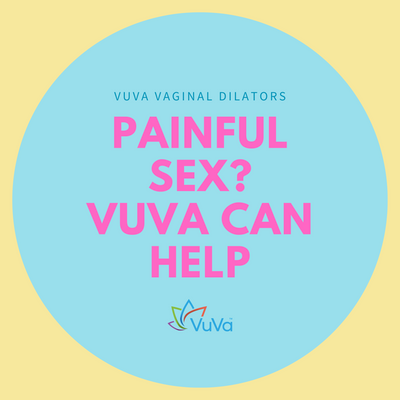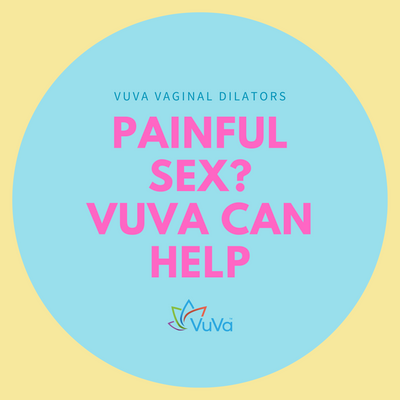
| Tara Langdale
Home Remedy For Atrophy
How can I manage Vaginal Atrophy at home?
Vaginal atrophy or dryness is a health condition causing vaginal tissues to become thin and inflamed. Most people assume vaginal dryness as a minor discomfort or easy to endure. However, the condition causes serious women's health concerns, affecting every area of a woman's life from physical well-being to self-esteem. While there are medications to treat vaginal dryness, they might not be the best choice for women looking for more natural treatments of vaginal atrophy without harmful side effects.
Lifestyle Changes
When it comes to treating painful dryness, the #1 home remedy for vaginal atrophy is to make lifestyle changes. While this may not be as easy as it sounds, making simple changes to your water intake and physical activity may improve vaginal health.
Increase Water Intake
Reversing vaginal atrophy by drinking more water helps increase natural lubrication. Drinking plenty of water helps hydrate your body by flushing your skin and cells with much-needed nutrients. Water increases your natural vaginal moisturizer, resulting in reduced discomfort.
Regular Exercise
Daily exercise helps flush the body of toxins and increases serotonin levels. Research shows that estrogen and serotonin are connected.Participating in daily exercise such as aerobic exercise, running, and yoga help increase serotonin levels and vaginal estrogen at the same time.
Serotonin is the happy hormone and helps regulate your mood. As hormones fluctuate, many women experience depression, anxiety, and mood swings in addition to vaginal atrophy.
Quit Smoking
One of the hardest habits to quit is smoking, but the health benefits are clear. Smoking leeches the vaginal tissues of moisturizer and estrogen. Not only does it decrease estrogen levels, but it may also lead to osteoporosis, among other health problems.
Stay Sexually Active
It's natural for your sex drive to decrease when suffering from vaginal atrophy. Experiencing painful sexual intercourse harms sexual health and relationships. However, sexual activity increases blood flow to the pelvic floor and tissues.
When the vaginal tissues have regular blood flow, it can increase natural moisturizers and lubricants. If sexual intercourse is too painful, stretching the vagina with a vaginal dilator is a remedy for vaginal atrophy.
Avoid Perfumed Products
Some perfumes, soaps, and detergents have synthetic chemicals that may irritate and dry the skin. Also, some vaginal lubricants and spermicides can dry the vaginal tissues when inserted. It’s better to avoid these products when they may increase the burning sensation associated with vaginal atrophy.
Vaginal Atrophy Treatments
While making lifestyle changes helps relieve symptoms of vaginal atrophy, there are other proven treatments available to support your healthy choices. One of these options, backed by science, is vaginal dilators.
Vaginal Dilator Therapy
Treating vaginal atrophy with vaginal dilators is a natural and safe remedy to alleviate painful symptoms associated with vaginal atrophy. Vaginal dilators are tube-shaped devices used to stretch the vagina while easing scarring and increasing vaginal lubrication.

Vaginal dilators come in graduated sizes; the smallest the size of your pinky and increasing from there. VuVa™ Magnetic Vaginal Dilators come in a set of five with complimentary water-based lubricant. When you undergo dilator therapy, starting at the size that causes the least amount of pain during use, helps make the treatment more effective.
Natural Vaginal Lubricants
Using natural and water-based lubricants during sexual activity and while using vaginal dilators helps ease dryness. Conventional plant-based lubricants for the genital area include:
- Aloe vera
- Coconut oil
- Jojoba
- Vitamin E
Probiotics
Some evidence shows that probiotics help reduce vaginal atrophy. Probiotics help balance vagina pH levels. A healthy vagina has balanced levels of the vaginal microflora, which are microorganisms and connected to stable vagina pH levels. When there's low levels of pH, acidity increases, leading to dryness and in some cases, urinary tract infections.
Hormone Therapy
Decreased levels of estrogen cause vaginal atrophy. One solution is to undergo hormone therapy with an estrogen product like an oral estrogen or cream. While hormone therapy is controversial, it's essential to talk to your doctor before beginning treatment.
Vaginal Atrophy Causes
Vaginal atrophy is thinning, drying, and inflamed vaginal walls due to low levels of estrogen. The cause of vaginal atrophy varies, but there are some common reasons for this condition.
Menopause
The North American Menopause Society defines menopause as the time in a woman’s life when menstruation comes to an end. Women transition from fertile to infertile, and during this time experience menopausal symptoms, including:
- Hot flashes
- Mood swings
- Weight gain
- Insomnia
- Vaginal atrophy
Progesterone and estrogen play a significant role in fertility and hormonal imbalance. The drop in hormones causes vaginal dryness, burning, and pain during sexual intercourse. The most common age for menopause is 51, but perimenopausal women begin experiencing transition symptoms 4-5 years before actual menopause.
Cancer Treatment
Women who undergo radiation therapy due to having cancer may develop vaginal atrophy. Radiation therapy causes thinning and drying of the vaginal walls, leading to scarring and tightening of the vagina.
After treatment, a woman may experience a burning sensation during sexual activity, a pelvic exam, or even inserting a tampon.
Breast Cancer Hormonal Treatment
Breast cancer is the most common type of cancer for women. Although, men can experience breast cancer too. Researchers have identified that hormonal, genetic, and lifestyle choices play a role in developing breast cancer.
Treatment for breast cancer varies depending on the type, but if the disease is hormone-sensitive, hormone-blocking therapy may help fight and prevent cancer from returning. Hormonal treatment may occur before or after breast cancer treatment. As a result, you may experience similar symptoms to menopause, including vaginal atrophy.
Surgical Removal of Both Ovaries
Removing a woman's ovaries takes away the ability to reproduce naturally. The body makes the transition into menopause. When this happens, a woman experiences painful menopausal symptoms such as night sweats and vaginal atrophy.
Experiencing daily vaginal atrophy changes the way you live and experience life. Fortunately, natural remedies for vaginal atrophy may provide relief. Making lifestyle changes help alleviate symptoms, and VuVatech vaginal dilators are a safe and effective way to heal naturally.

Do you need to order vaginal dilators so you can start your pelvic floor therapy process? Made in the USA. Visit www.vuvatech.com
VuVa Helpful Links:
How do Neodymium Vaginal Dilators work?
7 Reasons for a Tight Vagina and How to Loosen
How to Relax Vaginal Muscles, Vaginismus & Sex
Vaginal Stretching - Keeping in Shape with Dilators
Do Dilators Really Work? Yes, and They can Improve Your Sex Life!
Shop for VuVa Vaginal Dilators
Tara Langdale Schmidt is the inventor of the VuVa Dilator Company. She has pelvic floor dysfunction herself and wanted to create a dilator set that is made in America that women can trust. VuVatech has been in business since 2014 and has helped over 50,000 women all over the globe. She patented the Neodymium Vaginal Dilator, that is clinically proven to help with blood flow and nerve pain.














